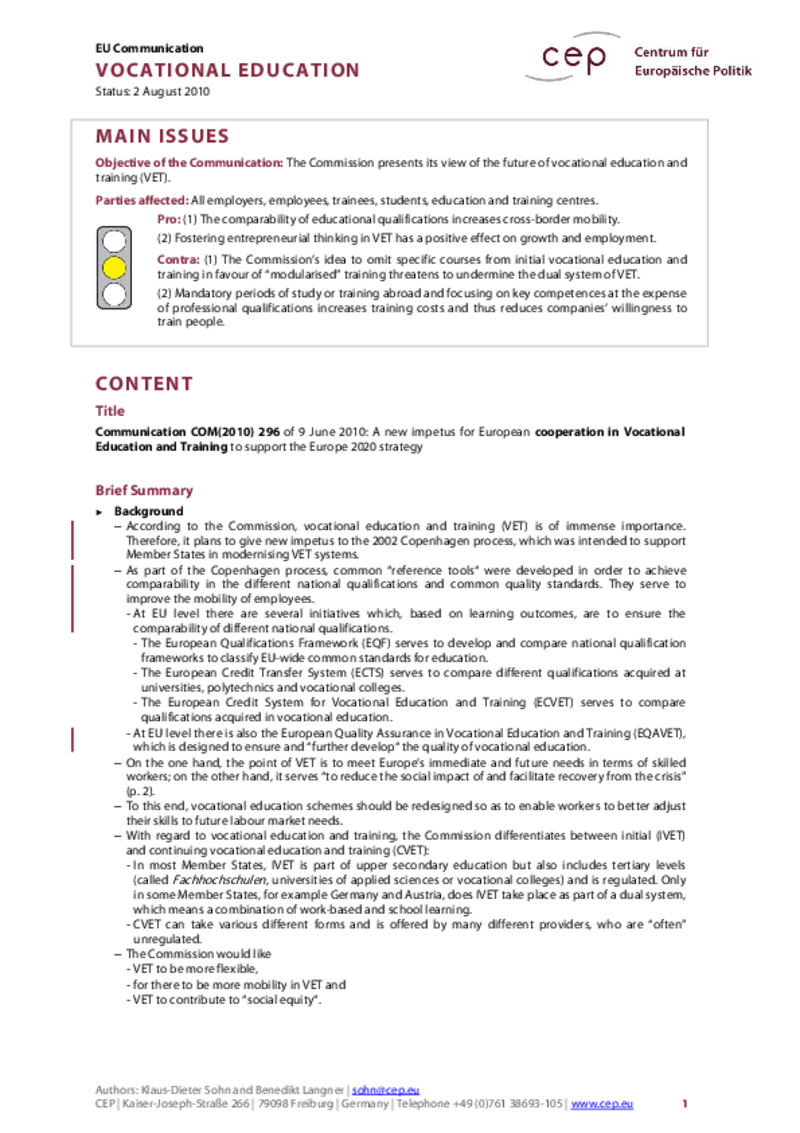
cepPolicyBrief
Employment & Social Affairs
Vocational Education (Communication)
cepPolicyBrief
The Commission is right in assuming that an improved comparability of educational qualifications in Europe will increase the cross-border mobility of learners and workers. However, this must not lead to mandatory requirements for stays abroad during vocational education and trainings. This would lead to higher costs for companies that offer training and, at the same time, would reduce their willingness to provide training.
Particularly alarming is the proposed dispensation of special vocational training courses during initial vocational education and training in favour of a “modularised” system. This threatens to undermine the dual system of education and training.
Download PDF
| Vocational Education COM(2010) 296 (publ. 07.29.2014) | 86 KB | Download | |
 | |||


